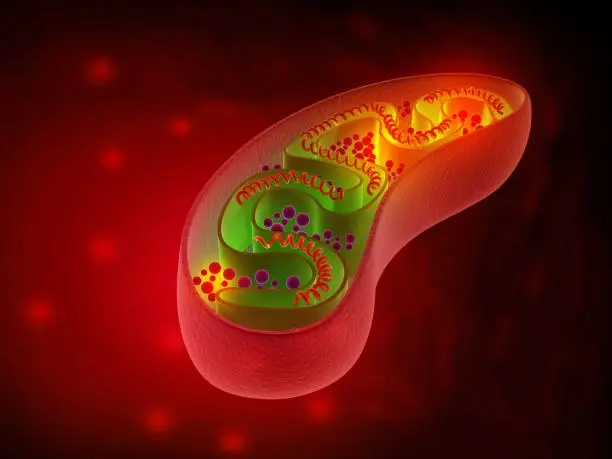
PROMO!
First order? Get 10% OFF with this code: 1storder
Written by

FOXO peptides are gaining attention in research for their potential to influence aging at a cellular level. These peptides are known for regulating important genes that maintain cell health and longevity.
While studies show promising results in slowing age-related decline, it is important to note these peptides are currently intended for research only and not for human use.
At Peptide Works, we provide these peptides strictly for scientific research purposes, supporting advancements in anti-aging science worldwide.
Understanding the fundamental mechanisms behind these peptides reveals their remarkable potential for cellular health.
Explore FOXO4-DRI Peptides from Peptide Works, gene-regulating compounds that promote autophagy and cellular defense for anti-aging research.

FOXO peptides regulate genes that are essential for protecting cells from damage and stress. They promote autophagy, which helps remove damaged parts and keeps cells healthy.
Research indicates these peptides improve defenses against oxidative stress and help regulate insulin signaling, both important for metabolism and aging.
FOXO peptides support cellular balance and repair mechanisms linked to a longer lifespan. These peptides are currently for research use. The cellular cleanup process known as autophagy represents one of the most critical functions influenced by these peptides.
Autophagy is a natural “cleanup” process where the cell recycles worn-out parts and gets rid of waste. FOXO peptides help trigger autophagy, supporting healthier cells and slowing age-related damage.
Cells with strong autophagy are more resilient to stress, which supports longevity. Scientific evidence links FOXO activation with better protein clearance and improved cell renewal.
Other research peptides like MOTS-C also boost autophagy, showing the broad importance of this process. These peptides are for research only, not for human use.
Beyond cellular cleanup, these peptides demonstrate remarkable abilities in protecting cells from harmful molecular damage.
Cells naturally produce harmful molecules called reactive oxygen species during everyday metabolism. Too many of these molecules create oxidative stress, which can damage important cell structures.
FOXO peptides play a vital role in activating antioxidant genes, giving each cell better defense against this type of stress. This process helps cells control inflammation and strengthen overall resilience.
FOXO signaling also supports mitochondrial health and the body’s redox balance, which are crucial for long-term cellular function.
Research continues to reveal new insights into this powerful mechanism. The connection to mitochondrial health represents another crucial aspect of FOXO peptide research.

Mitochondria are the powerhouses inside cells, producing energy to keep cells alive. Healthy mitochondria support cell survival and metabolism.
FOXO peptides help cells maintain mitochondrial quality by controlling how new mitochondria form and old ones are removed. This balance prevents cell damage and supports energy production.
When mitochondria work well, cells age slower and resist stress better. Peptides like MOTS-C also influence mitochondrial health, showing the importance of these processes.
The broader implications of peptide therapy extend to multiple aging mechanisms working in concert.
Peptides like FOXO4-DRI and MOTS-C help the body manage many aging processes using several mechanisms at the cellular level.
They support better mitochondrial function, which means cells keep their energy production high as people grow older. These peptides also help reduce oxidative stress, keeping cell components healthy and strong.
Some research shows they boost collagen and support tissue repair, contributing to healthy skin and organs. Peptide Works offers these research compounds to scientists worldwide studying longevity peptide mechanisms.
Among these peptides, FOXO4-DRI demonstrates particularly intriguing properties in cellular regeneration through targeted cell removal.
Explore MOTS-C from Peptide Works, a mitochondrial peptide that boosts metabolic function and cellular resilience for anti-aging support.
FOXO4-DRI is a peptide that targets aging cells known as senescent cells. It helps by removing these “zombie” cells, which can slow tissue repair.
FOXO4-DRI works by interfering with protein signals inside cells, triggering a process called apoptosis. This process selectively clears damaged cells and gives healthy cells more space to regenerate tissue.
Research suggests FOXO4-DRI can support regeneration in organs and skin and may be useful in anti-aging therapy.
Each study reveals more about how this peptide helps support true cellular renewal and repair. The mechanism of apoptosis represents a sophisticated approach to cellular health maintenance.
Apoptosis is a clean, controlled way for the body to remove unwanted cells without causing inflammation. FOXO4-DRI works by disrupting the link between FOXO4 and p53 proteins in senescent cells, not in healthy ones.
This triggers caspase activation, a signal for cell suicide, which safely eliminates damaged cells from tissues. By targeting senescent “zombie” cells for apoptosis,
FOXO4-DRI can help tissues stay young and healthy, encouraging real regeneration without harming normal cells.
This targeted approach is a key reason the peptide stands out in anti-aging therapy. These promising research findings point toward an exciting horizon for longevity science.
The future of FOXO peptide in anti-aging research looks bright based on current scientific progress. FOXO peptide and MOTS-C appear to support cellular repair, reduce oxidative stress, and promote tissue regeneration according to laboratory studies.
These anti-aging peptides play key roles in pathways tied to healthy aging and longevity research, fueling scientific curiosity and new investigations.
As research on peptide therapy evolves, Peptide Works remains committed to providing research-grade peptides for global customers advancing longevity science.
All products discussed are supplied for research purposes only and are not intended for human use.
[1] Martins R, Lithgow GJ, Link W. Long live FOXO: unraveling the role of FOXO proteins in aging and longevity. Aging Cell. 2016 Apr;15(2):196-207.
[2] Zhang C, Xie Y, Chen H, Lv L, Yao J, Zhang M, Xia K, Feng X, Li Y, Liang X, Sun X, Deng C, Liu G. FOXO4-DRI alleviates age-related testosterone secretion insufficiency by targeting senescent Leydig cells in aged mice. Aging (Albany NY). 2020 Jan 20;12(2):1272-1284.
[3] D’Souza RF, Woodhead JST, Hedges CP, Zeng N, Wan J, Kumagai H, Lee C, Cohen P, Cameron-Smith D, Mitchell CJ, Merry TL. Increased expression of the mitochondrial derived peptide, MOTS-c, in skeletal muscle of healthy aging men is associated with myofiber composition. Aging (Albany NY). 2020 Mar 17;12(6):5244-5258.
[4] Baar MP, Brandt RMC, Putavet DA, Klein JDD, Derks KWJ, Bourgeois BRM, Stryeck S, Rijksen Y, van Willigenburg H, Feijtel DA, van der Pluijm I, Essers J, van Cappellen WA, van IJcken WF, Houtsmuller AB, Pothof J, de Bruin RWF, Madl T, Hoeijmakers JHJ, Campisi J, de Keizer PLJ. Targeted Apoptosis of Senescent Cells Restores Tissue Homeostasis in Response to Chemotoxicity and Aging. Cell. 2017 Mar 23;169(1):132-147.e16.
ALL CONTENT AND PRODUCT INFORMATION AVAILABLE ON THIS WEBSITE IS FOR EDUCATIONAL PURPOSES ONLY.
DISCLAIMER: These products are intended solely as a research chemical only. This classification allows for their use only for research development and laboratory studies. The information available on our Peptide Works website: https://peptide-works.com/ is provided for educational purposes only. These products are not for human or animal use or consumption in any manner. Handling of these products should be limited to suitably qualified professionals. They are not to be classified as a drug, food, cosmetic, or medicinal product and must not be mislabelled or used as such.
Peptide Works
Related Articles

What are the Best Cognitive Peptides?
Cognitive peptides are short chains of amino acids that researchers are exploring for their potential effects on brain function. They

Achieving increased skin pigmentation without prolonged sun exposure has been demonstrated with Melanotan peptides in research. Two commonly studied options,

Can PTD-DBM Hair Growth Peptide Stop Balding?
Hair thinning and balding affect millions worldwide, often leading to frustration and limited options. This challenge has driven researchers to